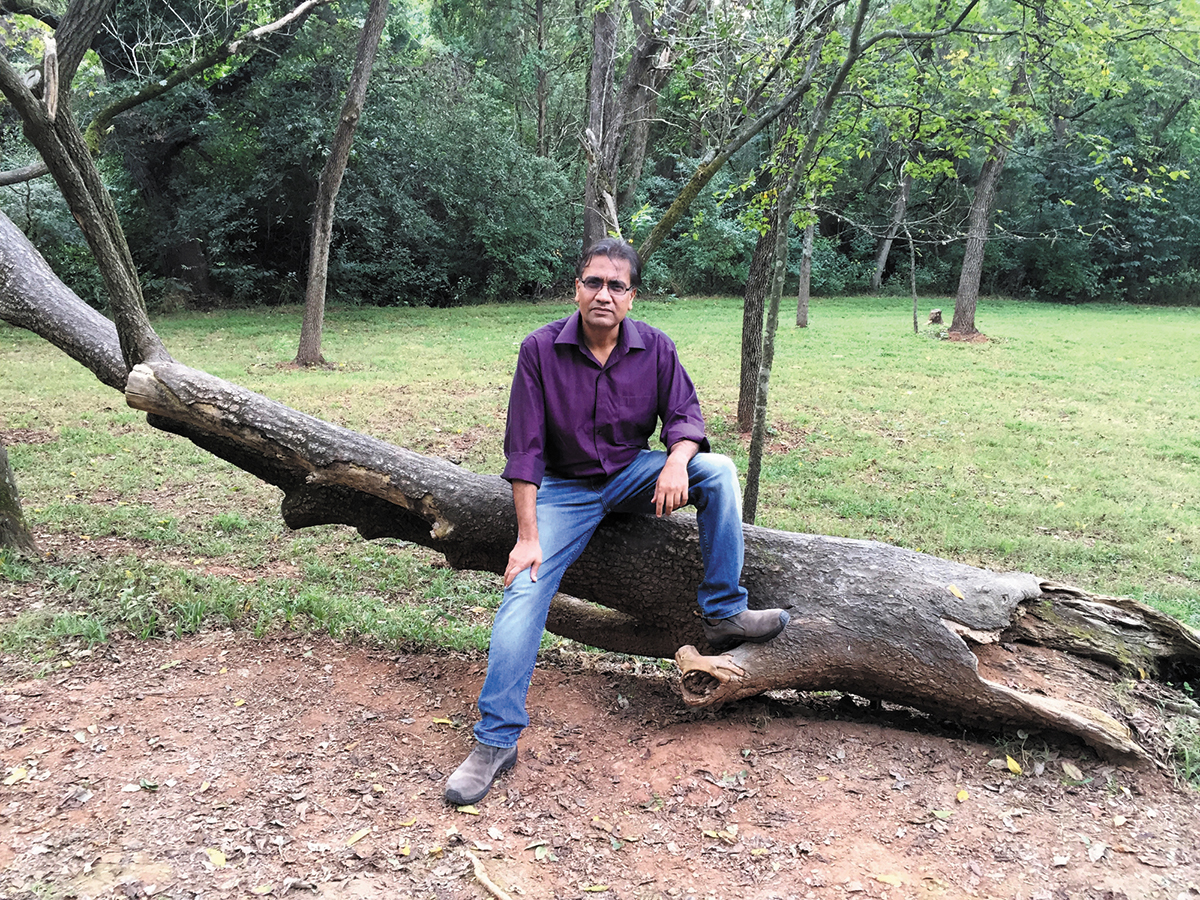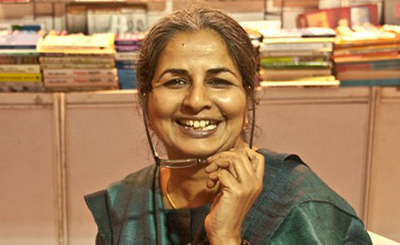
Photo courtesy of the author
Anil Menon is the author of Half of What I Say (Bloomsbury, 2015), which was recently shortlisted for the Hindu Literary Prize. Known for his speculative fiction, Menon feels that science can help us choose between preferences, but it can’t give us preferences. “Science deals with things that aren’t necessarily false. Art deals with things that aren’t necessarily true. Neither can speak about truth directly,” he says. About his latest polyphonic novel, he says, “There are two ways to write such a story. One is an austere minimal approach in which the author pursues silence. This is the road taken by Beckett and contemporary French minimalists. The other is the carnival, in which the author drowns the reader in noise. This is the road favoured by Bollywood and the great Russian novelists. It is also the road I chose for this novel.
Excerpts from an interview with The Punch:
THE PUNCH: How central have words and stories been to your professional and personal evolution?
ANIL MENON: Aren’t we all in the grip of stories? It starts with belting out nursery rhymes and before we know it we’re riding off on various idiotic quests.
THE PUNCH: You’re a computer scientist. What drew you to fiction? How did your workshop with Clarion West shape your writing?
ANIL MENON: I worked in software for quite a few years. It was great fun but after a while, it stopped being interesting. Computers can’t really deal with ambiguity, the immeasurable, or lack of closure. Fiction can’t do without these things, and I found myself thinking more and more about writing stories rather than designing algorithms. I went to Clarion West to see if I would be any good at it. I’ve realised a good writing workshop doesn’t really teach you to be a good writer. It makes you a “bad” reader. You suddenly start to see that stories are designed, that there is a subtle logic to fiction. It spoils reading, but in return you become a better writer. At CWest, I also discovered that I had something to say, and when I returned, I told the missus I’d give this writing thing a year. Well, it has been a very long year.
THE PUNCH: How conscious, if at all, are you of the genre (speculative fiction, sci-fi or sub-genre, mundane SF) you write in — and your target readers — when you write?
ANIL MENON: The genre doesn’t matter much. For me, the genre label only applies to the story, not the writer. I work on a story and only after finishing do I worry about where to place it. Occasionally, I get invited to submit something, and then of course I have less play. These days, most of my short stories are very much in the here and now.
THE PUNCH: Your stories, even though SF, remains in the realm of possibility, of things that seem credible. They seem to convey the idea of “near future” as against “distant future”. Is that deliberate to make stories credible and do you have to work on this purposefully? Do you consciously avoid tropes like time travel or aliens or parellel dimensions?
ANIL MENON: Well, I don’t see how it is possible to write a story about the far future. That’s because I don’t believe the far future will have humans. I mean, as a species, it is highly likely we will transform our biology radically. The signs are all around us. But the moment we write a story, we introduce humans one way or the other. We have no choice. We cannot imagine a story without humans. So, science-fiction can no more bridge the gap between today and that distant tomorrow anymore than a chimpanzee can bridge the gap between its thoughts and the Shakespearean sonnet.
THE PUNCH: Is short fiction more liberating or harder to write than novels?
ANIL MENON: For me, short stories are definitely more fun. Both for reading and writing. The best are stories
such as those by Naiyer Masud; they are short stories that feel like novels.
THE PUNCH: Let’s talk about a few of your short stories. A short story you published in 2008, “Into The Night”, tells the story of 82-year-old Kallikulam Ramaswamy and his last days with his daughter Ganga on an artificial island. An elegy for a man’s life, it’s also a reflection on our ways of grappling with the future, of how, in the end, we realise that there is no way of dealing with the future, except perhaps to learn to adapt and ultimately allow ourselves to drown into its waves. Could you tell us about its genesis?
ANIL MENON: I know quite a few bewildered Ramaswamys in the US. It is staggering to consider the amount of change they’ve seen in their lives. Their wives are creatures of situation; they adjust. But the men, they tend to be creatures of place in the way the Bodhi tree is a creature of place. You can’t uproot them and expect them to remain whole. In the end, their refusal to be happy is all the resistance they can offer in utopia. I was glad to be done with the story. It took me to some dark places.
Page
Donate Now
Comments
*Comments will be moderated











